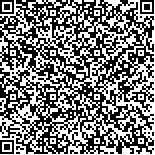附件
|
| 引用本文: | 熊雪平,罗进勇,翟东东,刘红艳,陈元元,熊飞.武汉市汉阳水网中5个连通湖泊的轮虫群落结构与物种多样性.湖泊科学,2024,36(5):1479-1492. DOI:10.18307/2024.0534 |
| Xiong Xueping,Luo Jinyong,Zhai Dongdong,Liu Hongyan,Chen Yuanyuan,Xiong Fei.Community structure and species diversity of rotifers in five connected lakes in Hanyang water network, Wuhan. J. Lake Sci.2024,36(5):1479-1492. DOI:10.18307/2024.0534 |
|
| |
|
|
| 本文已被:浏览 2390次 下载 3032次 |

码上扫一扫! |
|
|
| 武汉市汉阳水网中5个连通湖泊的轮虫群落结构与物种多样性 |
|
熊雪平1, 罗进勇1, 翟东东1,2, 刘红艳1,2, 陈元元1,2, 熊飞1,2
|
|
1.江汉大学生命科学学院, 湖北省汉江流域特色生物资源保护开发与利用工程技术研究中心, 武汉 430056;2.江汉大学, 持久性有毒污染物环境与健康危害湖北省重点实验室, 武汉 430056
|
|
| 摘要: |
| 轮虫是湖泊生态系统食物链的关键环节,其群落结构和物种多样性是反映水环境现状的有效生物指标。为评估汉阳水网的水体健康状况及富营养化发展趋势,为湖泊生态修复和生物多样性保护提供科学依据,于2021—2022年对水网中5个不同富营养化程度湖泊的水环境及轮虫等浮游生物进行了季节性调查分析。结果表明,水网中大多数环境因子和生物因子存在显著的时空差异。5个湖泊共采集到轮虫15科25属51种,共有优势种为裂痕龟纹轮虫(Anuraeopsis fissa)、长三肢轮虫(Filinia longiseta)、螺形龟甲轮虫(Keratella cochlearis)、针簇多肢轮虫(Polyarthra trigla)和对棘异尾轮虫(Trichcoerca similis),均为典型的富营养指示种。5个湖泊轮虫的年均密度范围为109.65~995.92 ind./L,Shannon-Wiener指数和Margalef指数年均值的范围分别为0.86~1.68和0.65~1.44,密度和多样性指数的峰值多出现在夏、秋季。非度量多维尺度分析表明,轮虫群落结构的季节差异明显,除后官湖外,其余湖泊的空间差异较小。多元逐步回归分析显示,轮虫种类数和Margalef指数主要受原生动物密度的影响,Shannon-Wiener指数主要受水温的影响,轮虫密度主要受浮游植物密度的影响。典范对应分析显示,轮虫群落结构的时空变化与水温、氨氮、透明度、总氮、浮游植物密度和枝角类密度有关。分段线性回归分析显示,在一定范围内,轮虫种类数、密度和多样性指数与综合营养状态指数呈正相关,当综合营养状态指数达到70后,轮虫的种类数、密度和多样性指数呈现下降的趋势。 |
| 关键词: 轮虫 群落结构 多样性 富营养化 汉阳水网 |
| DOI:10.18307/2024.0534 |
| 分类号: |
| 基金项目:江汉大学一流学科建设重大专项(2023XKZ025)、江汉大学科技创新专项项目(2021kjzx006)和湖北省高等学校优秀中青年科技创新团队计划项目(T2020034)联合资助。 |
|
| Community structure and species diversity of rotifers in five connected lakes in Hanyang water network, Wuhan |
|
Xiong Xueping1, Luo Jinyong1, Zhai Dongdong1,2, Liu Hongyan1,2, Chen Yuanyuan1,2, Xiong Fei1,2
|
|
1.School of Life Sciences, Jianghan University, Hubei Engineering Research Center for Protection and Utilization of Special Biological Resources in the Hanjiang River Basin, Wuhan 430056, P. R. China;2.Hubei Key Laboratory of Environmental and Health Effects of Persistent Toxic Substances, Jianghan University, Wuhan 430056, P. R. China
|
| Abstract: |
| Rotifers are closely related to the process of lake eutrophication and can rapidly respond to changes of water environment. In this study, we selected five small shallow lakes with different nutrient levels in Hanyang water network to explore the spatiotemporal changes of rotifer community structure and species diversity and its driving factors, in order to provide scientific basis for lake ecological restoration and biodiversity protection. Twenty-six sites were investigated in June (summer), September (autumn), December (winter) of 2021, and March (spring) of 2022, respectively. Most of the environmental and biological factors in the water network had significant spatiotemporal difference. In total, 51 species of rotifers were collected and dominated by Anuraeopsis fissa, Filinia longiseta, Keratella cochlearis, Polyarthra trigla and Trichcoerca similis. The average annual density of the five lakes ranged from 109.65 to 995.92 ind./L, and the average annual Shannon-Wiener index and Margalef index ranged from 0.86 to 1.68 and 0.65 to 1.44, respectively. Non-metric multi-dimensional scale analysis revealed significant seasonal difference in rotifer community structures, with relatively small spatial difference except for Lake Houguan. Multiple stepwise regression analysis showed that rotifer species number and Margalef index were mainly affected by protozoa density; rotifer density was mainly affected by phytoplankton density; Shannon-Wiener index was mainly affected by water temperature. Canonical correspondence analysis (CCA) showed that the spatiotemporal changes of rotifer community structure were related to water temperature, ammonia nitrogen (NH3-N), transparency (SD), total nitrogen (TN), phytoplankton density and cladocera density. Within a specific region, the segmented linear regression model demonstrated a positive correlation between the complete nutrient status index (TLI(Σ)) and the species, density, and diversity index of rotifers. When the TLI(Σ) reached about 70, the species, density, and diversity index of rotifers showed a downward trend. |
| Key words: Rotifer community diversity eutrophication Hanyang water network |
|
|
|
|